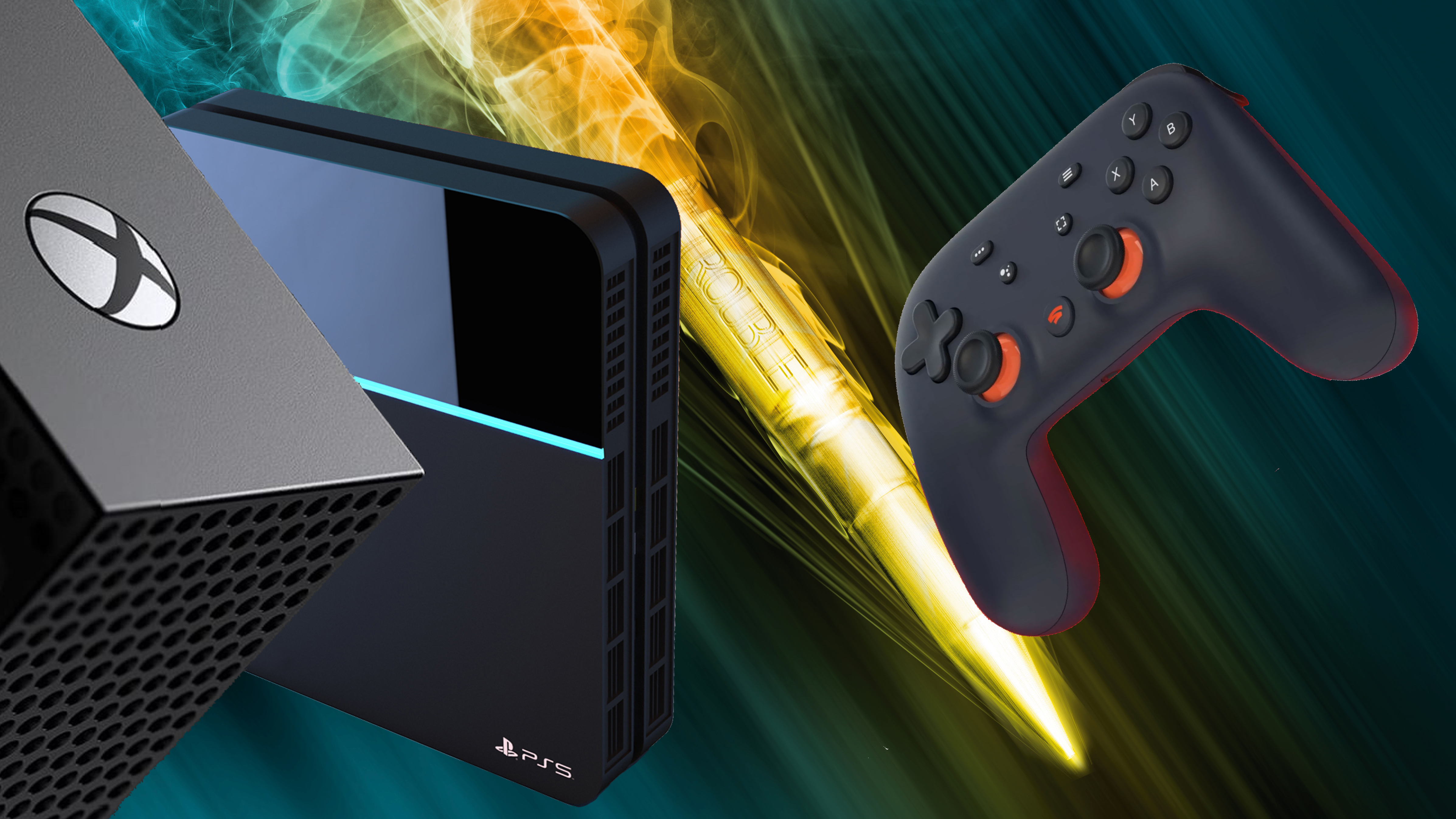

"Console software is gonna move off consoles," Michael Pachter said back in 2017. "So Sony is gonna lose market dominance when you can play Call of Duty without a console, and that’s gonna happen in 2019 or 2020. So in the next 2 to 3 years, you’re gonna have the opportunity to download to your PC and play on your TV.
"And in the next 10 years you’re gonna download to your phone and play on your TV. When that happens, and there’s no reason to buy a console, then the only people who are gonna buy consoles (PlayStations) are the people that wanna play Sony proprietary first party content."
Those quotes come from T3's "How the console war ends by 2020" feature from back in 2017 and, with Google Stadia now launching its vanguard attack on the established gaming city-states of PlayStation, Xbox and Nintendo, with the streaming-only hoards very much at the city gates, Pachter's comments seem even more prophetic.
"The future of gaming is not a box," Google taunted Sony, Microsoft and Nintendo as it blew the trumpet of war and unleashed Google Stadia upon the world of gamers.
But, despite all this, traditional consoles are still coming, with the Sony PlayStation 5 and Microsoft Xbox Scarlett flagship console (referred to right now as the Xbox Two) set to launch next year, as well as a new Nintendo Switch later this year. Which, of course raises the question of exactly how the established pillars of the gaming world are going to survive.
Well, a recent report by The Wall Street Journal's Takashi Mochizuki seems to, at least from a Sony perspective, explain the battle plan. According to Mochizuki Sony's strategy is to "focus on hardcore gamers who obsess over the latest features", and will achieve this with a console that boasts "sharper graphics and well-known games".
Now, on the face of it, that sounds like an obvious play. However, in a world where, as history has shown, console-making companies can lose track of exactly what gamers want (and notably hardcore gamers who act as the core of the community), it actually might be the focused non-maneuver that wins the day for the old masters.
Sign up to the T3 newsletter for smarter living straight to your inbox
Get all the latest news, reviews, deals and buying guides on gorgeous tech, home and active products from the T3 experts
This is because as the history of the video gaming industry has shown, gamers just want to play top games and in the best possible way in terms of visual fidelity, frame rate and immersive audio. And – guess what – they'll pay for it.
Just look at the PC gaming scene. Here, gamers literally spend hundreds upon hundreds, if not thousands on a system that will play the games they love at the absolute best quality possible. You only have to look at T3's best gaming laptops or best gaming desktop guides to get a taste at just how much PC gamers value playing top PC games not just at playable settings, but at max, no-compromise settings.
Supply hardcore gamers quality games and not, say, overly complicated and badly locked down "Live TV" features (cough, original Xbox One, cough) or $600 dollar Blu-ray players with some underwhelming launch games tacked on (can you believe Sony did that with the PS3?!), and they will gravitate towards the best system to play them on.
And, even better, supply gamers a proper piece of gaming hardware, one that locally delivers 4K/8K, 120Hz, HDR graphics with next-level feature like ray tracing enabled, as well as the ability to stream games from the cloud like Google Stadia through services like Xbox Game Pass and PlayStation Now, and you fend off Stadia with a twin phalanx that embraces the new, which is without doubt a large part of the future of gaming, while also tapping directly into the core of what has always crowned console generation winners from losers, games and the ability to play them at their best.
Indeed, will hardcore gamers want to buy Google Stadia, then pay full price for cross-generation or existing games – that they then don't physically own (and therefore can't resell – and then pay an extra monthly fee to to actually play those games, if they can get a cheaper and better quality experience on PS5 or Xbox Two, even if it means putting down more money out of the gate for a home system?
It looks like, for once, Microsoft, Sony and Nintendo have all remembered this in time for the next console generation. You only have to look at reports like Mochizuki's and those that state that Project Scarlett will include multiple consoles, with one a purely streaming-only system, as well as those showing that Sony and Microsoft are actually now working together to build a "Netflix for games", to see that they not only take the Google Stadia threat seriously, but have been bolstering their defenses for years now for, what could very well be, one of the most brutal battles in the history of the console wars.
Rob has been writing about computing, gaming, mobile, home entertainment technology, toys (specifically Lego and board games), smart home and more for over 15 years. As the editor of PC Gamer, and former Deputy Editor for T3.com, you can find Rob's work in magazines, bookazines and online, as well as on podcasts and videos, too. Outside of his work Rob is passionate about motorbikes, skiing/snowboarding and team sports, with football and cricket his two favourites.

